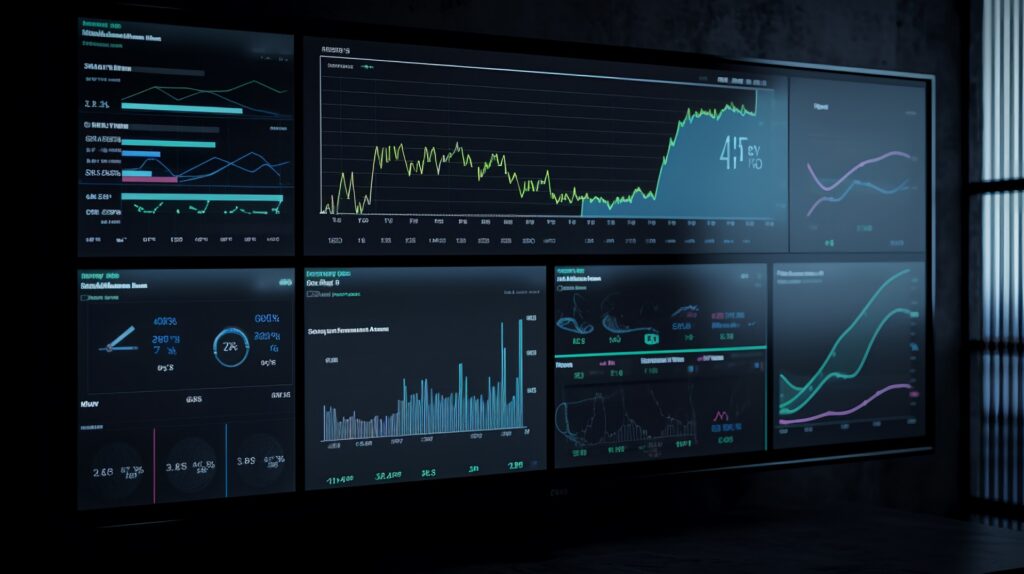In the ever-evolving landscape of the internet, the future of websites promises a seamless blend of innovation and human connection. As we stand on the brink of a new digital era, it’s essential to explore the trends that will shape the way we interact with the online world. In this article, we embark on a journey into the future, where websites become more than just digital entities; they become personalized, empathetic, and intricately linked to the essence of being human.
1. Personalization Takes Center Stage
Imagine a virtual space that not only knows your preferences but anticipates your needs. The future of websites is all about personalization. From tailored content suggestions to customized user interfaces, websites will become adept at understanding individual users on a deeper level. This personal touch not only enhances the user experience but also fosters a sense of connection between the user and the digital platform.
2. Artificial Intelligence (AI) and Human Collaboration
AI is not here to replace human touch but to amplify it. In the future, websites will harness the power of AI to facilitate more meaningful interactions. Chatbots will evolve into virtual companions, understanding not just the words we type but the emotions behind them. Human-AI collaboration will lead to websites that adapt and respond to users in real time, creating a dynamic and engaging online environment.
3. Immersive Experiences with Augmented Reality (AR) and Virtual Reality (VR)
The future of websites transcends the two-dimensional screen. AR and VR technologies will play a pivotal role in creating immersive online experiences. Imagine browsing a website where products come to life in front of your eyes or exploring a virtual showroom from the comfort of your home. The line between the physical and digital worlds will blur, offering users an unparalleled and interactive journey through the web.
4. Ethical Design and User Trust
As websites become more sophisticated, the need for ethical design becomes paramount. The future demands a shift towards user-centric practices, respecting privacy and fostering trust. Websites will prioritize transparency in data usage, ensuring users have control over their personal information. Human-centric design will not only be a trend but a necessity, creating online spaces that prioritize user well-being and digital ethics.
5. Voice Search and Conversational Interfaces
With the rise of virtual assistants and smart speakers, voice search is set to dominate the web landscape. The future of websites involves optimizing content for natural language processing and embracing conversational interfaces. Websites will feel more like friendly conversations, with users interacting with the online world using their voices. This shift towards conversational experiences will make navigating the digital realm more intuitive and accessible.
6. Social Connectivity and Community Building
Websites of the future will not only serve as information hubs but as vibrant communities. Social connectivity will be at the core, with features that facilitate real-time interactions and shared experiences. Whether it’s collaborating on projects or engaging in discussions, websites will evolve into spaces that foster a sense of belonging and community, bringing people together across the digital divide.
7. Blockchain Technology for Trust and Security
The future of websites is secure and transparent, thanks to blockchain technology. Decentralized systems will enhance data security, providing users with a level of trust previously unseen on the web. Smart contracts will streamline transactions, and digital identities will be securely managed, reducing the risk of online fraud. Blockchain’s integration into websites ensures not only security but also a more equitable and trustworthy online environment.
8. Sustainability in Web Development
As the world becomes more environmentally conscious, the future of websites will prioritize sustainability. From energy-efficient hosting solutions to eco-friendly coding practices, websites will strive to reduce their carbon footprint. The web development community will lead the charge in creating digital spaces that contribute to a more sustainable future, aligning with the global commitment to environmental responsibility.
9. Continuous Evolution with Progressive Web Apps (PWAs)
Gone are the days of static websites. The future belongs to Progressive Web Apps (PWAs), blurring the lines between websites and mobile applications. PWAs offer seamless offline functionality, quick loading times, and an app-like user experience. Websites will no longer be stagnant entities but dynamic platforms that evolve and adapt to user needs, ensuring a constant connection regardless of the device or network conditions.
10 . Empathy-Driven Design
In the future, websites will not only understand user behavior but empathize with it. Empathy-driven design will be the cornerstone of creating digital experiences that resonate with users on an emotional level. From inclusive design practices to acknowledging diverse user needs, websites will become more attuned to the human experience, making the online journey a reflection of our shared humanity.
Conclusion
The future of websites is a captivating blend of technological innovation and the human touch. As we progress into this new era, the digital landscape will become more personalized, immersive, and socially connected. The websites of tomorrow will not only meet our needs but anticipate them, creating a digital world that is not just intelligent but empathetic—a true reflection of the best aspects of being human. Embrace the future; it’s a web woven with the threads of innovation and humanity.





